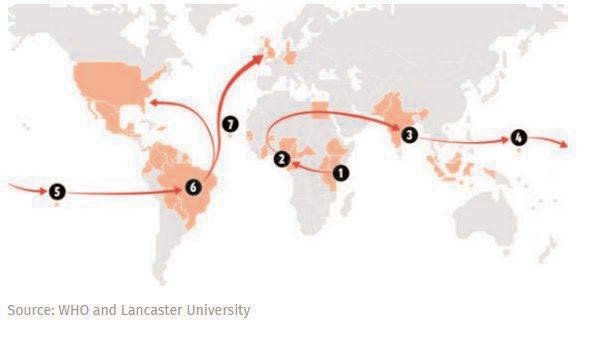
LONDON:
The first recorded case of an Indian travelling to Switzerland for “suicide tourism” has now been confirmed. In a first of its kind study, researchers in UK have confirmed tremendous spike in a worrying trend of suicide tourism. The numbers of ‘suicide tourists’ going to Switzerland to take their own lives have doubled within four years with citizens from Germany and UK contributing to the largest per cent.
Those with neurological conditions, such as paralysis, motor neurone disease, Parkinson’s and multiple sclerosis, account for almost half of the cases. While 123 people undertook suicide tourism in 2008, the number rose to 172 in 2012. The data shows that nationals from 31 different countries were helped to die in Switzerland between 2008 and 2012, with German (268) and UK (126) nationals making up almost two thirds of the total.
Other countries in the top 10 include France (66), Italy (44), USA (21), Austria (14), Canada (12), Spain and Israel (each with 8). The data base made public on Thursday morning shows one case from India as well in 2012. The study by Oxford University looked at whether the availability of suicide tourism in Switzerland had prompted changes in the law on assisted suicide elsewhere. While assisted suicide (AS) is strictly restricted in many countries including India, it is not clearly regulated by law in Switzerland.
This imbalance leads to an influx of people — suicide tourists — coming to the Canton of Zurich with the sole purpose of committing suicide. Political debate regarding ‘suicide tourism’ is taking place in many countries. Swiss medico legal experts are confronted with these cases almost daily, which prompted our scientific investigation of the phenomenon, said the researchers.
Researchers therefore searched the databases of the Institute of Legal Medicine in Zurich for information on investigations and post mortem examinations among non-Swiss nationals who had been helped to take their own lives between 2008 and 2012. There are six right to die organisations in Switzerland, of which four permit nationals from other countries to use their services.
The search revealed that 611 people who were not resident in Switzerland had been helped to die between 2008 and 2012, all but four of whom had gone to Dignitas. Their ages ranged from 23 to 97, with the average being 69; over half (58.5%) of the ‘tourists’ were women, who were 40% more likely to choose assisted suicide in Switzerland than men. The rises were particularly steep in certain countries, especially Italy — up from 4 in 2009 to 22 in 2012, and France, up from 7 in 2009 to 19 in 2012. Overall, the numbers of people being helped to die in Switzerland doubled between 2009 and 2012.
Virtually all the deaths were caused by taking sodium pentobarbital. Four people inhaled helium — deaths which were widely publicised and described as “excruciating”, and possibly responsible for the dip in numbers of suicide tourists to Switzerland between 2008 and 2009, say the researchers. Around one in three people had more than one condition, but neurological conditions accounted for almost half of the total cases, followed by cancer and rheumatic diseases.
The study published on Thursday in the Journal of Medical Ethics suggest that the phenomenon of suicide tourism, which is unique to Switzerland, has prompted legislative changes and/or serious debate in Germany, the UK, and France—the principal sources of this type of tourism. But Dr Charles Foster of Green Templeton College at the University of Oxford is not convinced that this is the case in the UK. He argues that there are two possible connections between suicide tourism and policies surrounding assisted suicide in the UK.





Be the first to comment